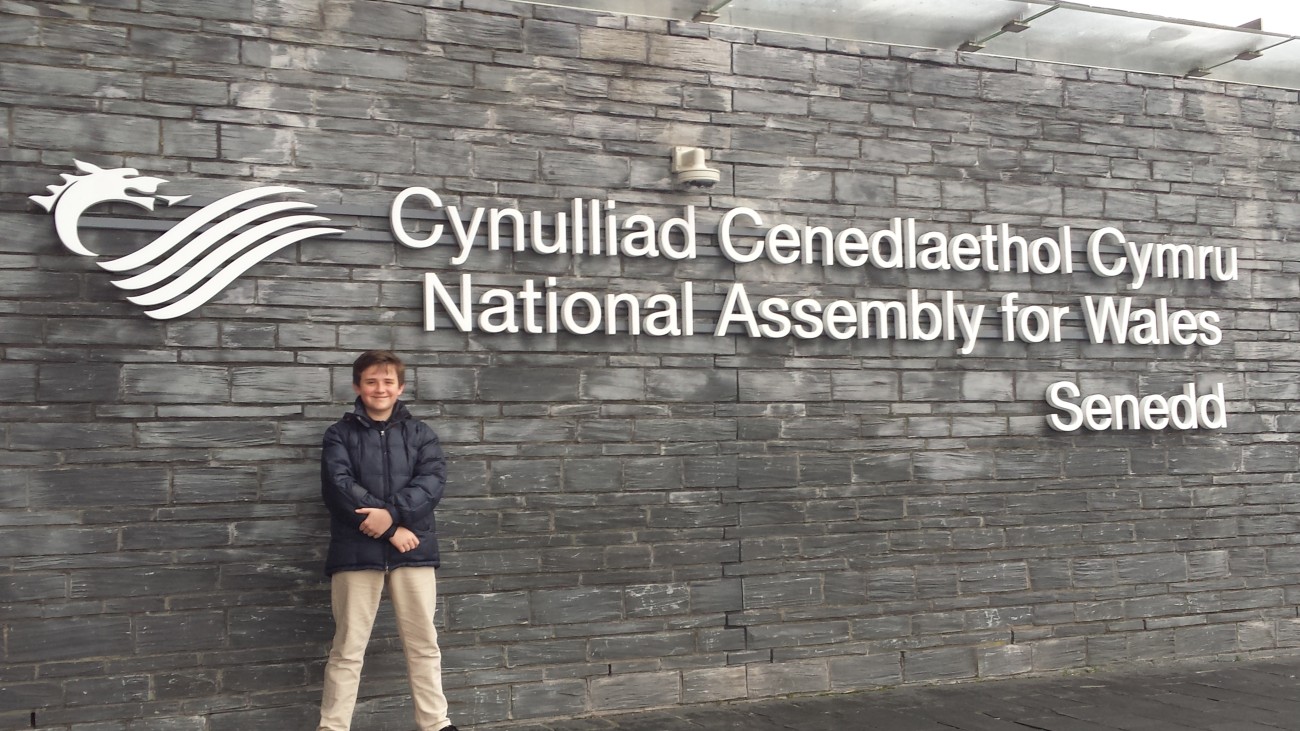Your humble correspondent is currently on a visit to the Land of Song, where presumably the All Blacks will dish out another rugby lesson in a week or so. After an informative visit to the Welsh Assembly today, I’m also hoping it’s not just rugby in which Kiwis could instruct my compatriots, but also how to spend public money (or better still, not spend public money). I suspect, however, that with our new government’s $1billion a year regional development programme we’ll see yet another example of the folly of government attempts at driving economic growth.
Never having been to the Welsh Assembly, which came into being a few years after I left in 1995, I was keen to have a look. The 13 year old is also a keen student of politics, so it was an obvious day out. We did the tour and then stuck around for First Minister’s questions. There was a sombre mood, with nearly an hour devoted to tributes to former cabinet minister, Carl Sargeant who committed suicide just a week previously after being sacked as Minister and suspended from the Labour Party over allegations of sexual harassment. First Minister, Carwyn Jones had to field a tricky question about allegations of bullying in his office leading up to the tragic events of the previous week.
Then came a question about the future of Enterprise Zones in Wales. David Rees, Labour member for Aberavon was concerned that the Ministry of Justice was going to buy land for a prison which is in one of the zones. After the First Minister had given a typical non answer, Russell George, the Conservative member for Montgomeryshire followed up with some startling statistics about the apparent efficacy of one of the zones. It appears that since 2012 the Welsh government had spent no less that £94.6million pounds (NZ$188million) on the Ebbw Vale Enterprise Zone and had ‘created, safeguarded or assisted’ just 390 jobs. That worked out to nearly £250,000 per job ! Note also that the producer of the government statistics had to scrape the barrel with ‘safeguarded’ jobs and ‘assists’ as presumably the actual created jobs number alone was just too pitiful to publish.
What on earth the Welsh bureaucrats did with all that money I have no idea, but it certainly didn’t have the effect of creating many jobs. (Not that I’m a believer that government should be responsible for creating jobs, but that was supposedly one of the main reasons for creating the zones).
So, that prompted me to check what our government is committing our hard earned cash to with its’ Regional Fund. It appears that commitments have been made to invest in regional railways and plant a million trees a year. Whilst it was Winston Peters’ New Zealand First who apparently wanted the Regional Fund, these would seem to be more concessions to the Greens agenda and unlikely to be very stimulating to business or job creation.
One can’t help wondering what the effect on the economy would be if the government were to simply spend $1billion dollars a year less, reduce business taxation by the same amount, and allow business to invest that money as they see fit. As this Mises Institute article explains, governments are not engines of economic productivity. The more they try to help economic growth, the less they achieve it.
